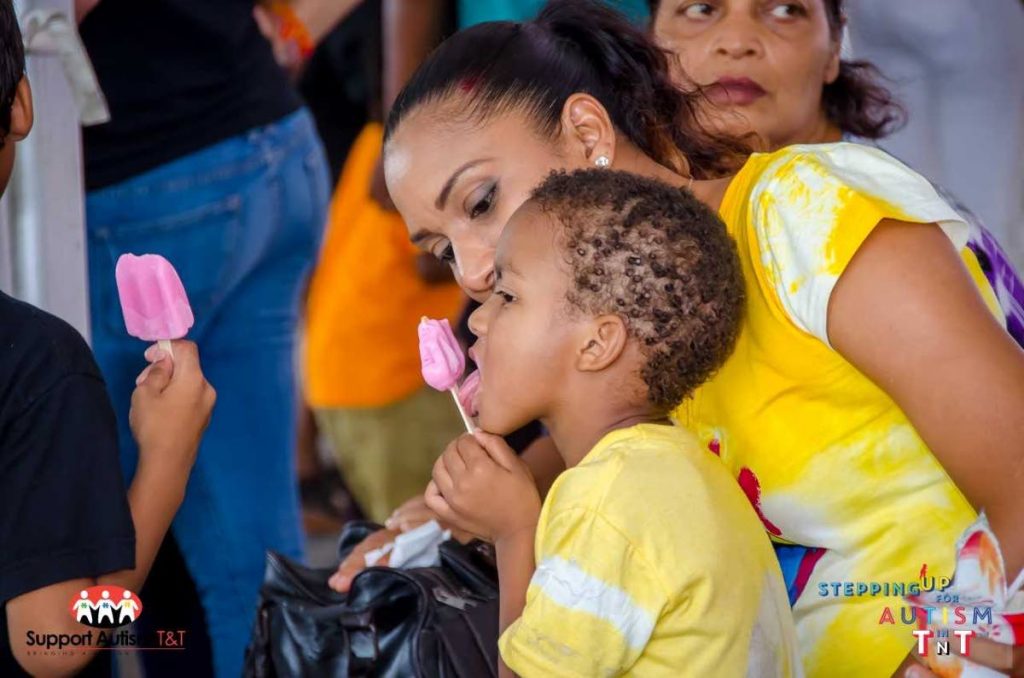Autism realities in TT

DR RADICA MAHASE
“I always knew something wasn’t right. I could tell from the time Josiah was about one-year-old. He used to cry all the time as a baby. He didn’t creep and he would bang his head on the floor. When we went to the health centre I asked the nurse about that and she said that he was just a fussy baby.
“When he reached about two and a half years he was only making sounds, not even saying mama or dada. And when we speak to him he won’t look at us or react. At another visit to the heath centre I asked another nurse and she told me that I might be correct but they don’t deal with that in the health centre so I should take him to a private doctor. “We made an appointment to take him to a private paediatrician. He was very nice. He charged us $300 for the visit but said that he couldn’t really do anything because that wasn’t his area so he had to send us to his colleague who specialised in children like Josiah.
“The specialist was a whole different story. When we called to make the appointment we were told it would cost $5,500. We didn’t have the money, so we had to wait about six months before we could raise that amount. “The specialist told us that Josiah had autism and he needed therapy to help him function. We had to pay another $500 for a report that we could take to the therapists.
“We didn’t know what to do after that. We didn’t know anyone who had a child like Josiah. A few months later we found out about a speech therapist and we took Josiah but after we paid $3,000 for an assessment, we were told that we had to sign a contract to do at least ten sessions with her. A session cost $350 and we didn’t have the money.

“It was also very difficult for us to leave Cumuto to go to Port of Spain for a 45 minutes therapy session. We spent so much money to find out what wrong with Josiah and now all we really have is a piece of paper saying that he has autism.
“We don’t have the money to give him the help he needs. We do what we can for him but he’s now seven-years-old and he’s still in a pre-school and that’s only because my cousin runs the school.
“He should be in a primary school and he should be getting the help he needs. We are so worried about what will happen to him as he gets older.” The reality in our country is that individuals from middle- and lower-income brackets struggle to access services and resources for their children. Those from rural areas are at an even bigger disadvantage.
Josiah’s parents had to wait six months before they could raise the funds to get him diagnosed. The paediatrician sent them to a private practice that belonged to his colleague – they were not pointed towards a public hospital, where, despite the fact that the waiting period can be up to 18 months, they would not have had to pay so much money.
There are no structures in place, no proper system which provide guidelines for parents who might notice developmental delays in their children. The health care system is failing these children; in Josiah’s case the health centre could not help and the cost of the diagnosis at the doctor’s practice was very high.
The public health care system should be the first point where development delays in children are noticed and attended to. It is one thing when parents choose to take their children for medical care privately but a completely different thing when they simply don’t have a choice – they have to go privately because the public health care system is lacking.
What is the Ministry of Health doing to ensure that parents do not have to pay high fees to diagnose a child? Is the ministry training nurses to recognise development delays in children and to decrease the waiting period for assessments in the public health care system? What structures are in place to provide services for the children once they are diagnosed? When will the various therapies be available in the hospitals and health centres?
As citizens of TT, Josiah and his parents deserve a more supportive and accessible system.
Dr Radica Mahase
Founder/Director, Support Autism T&T

Comments
"Autism realities in TT"